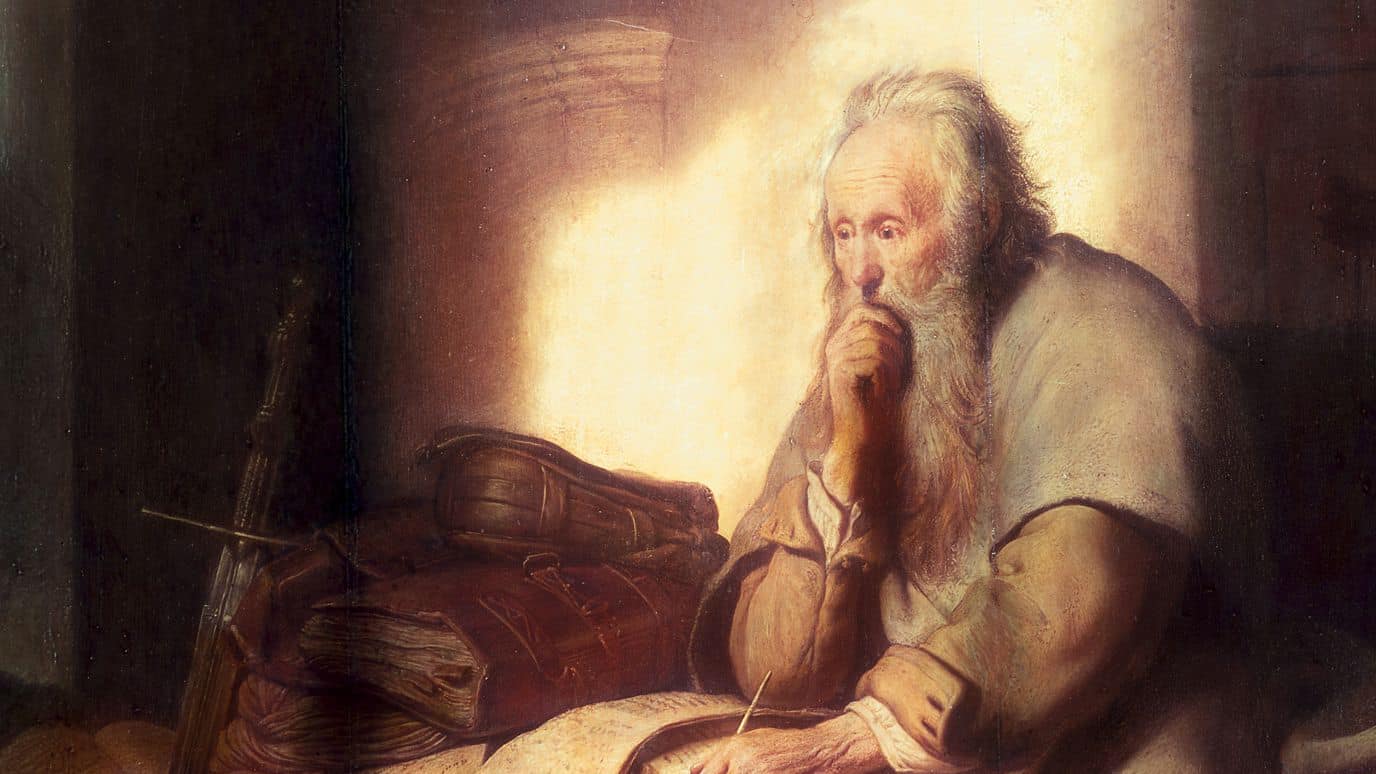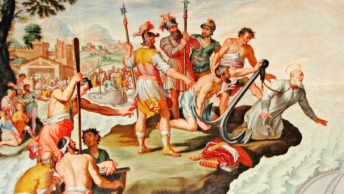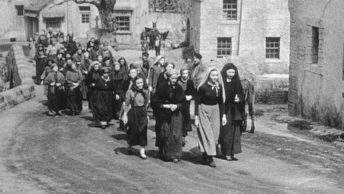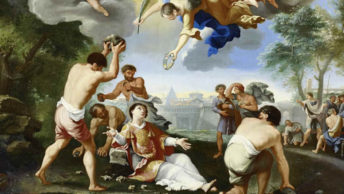I cry out to you ‘violence’ but you do not intervene. Why do you let me see ruin; why must I look at misery?
They are words written millennia ago, and yet so vivid, so timely, so fitting. They are words, though, that put our faith to the test. So few things appear to be clear in this world; many of them are painful—more, as it seems, than those that are comforting. God, our loving and merciful Lord, did not stop the terrorists from erasing 3000 lives on September 11, 2001, from creating, in a few minutes, numerous widows and orphans and from piercing our collective heart with an incurable wound.
Why must I look at misery?
And, much more recently, we can hardly look at the devastation of hurricane Dorian in the Bahamas. Nor can we fathom what led a deceased abortionist doctor to keep in his home the gruesome remains of 2, 246 aborted babies.
To the heartrending tragedies and mounting acts of violence and terrorism to which we have grown accustomed, we, believers, must add the silent and much larger tragedy of abortion, embryonic stem cell research, assisted suicides and euthanasia of the sick and the disabled.
The month of October is respect-for-life month. The arrogant and the inflexible, who expect us to remain silent and allow for the destruction of the most defenseless of human lives to continue unchallenged, are quick to label us insensitive and cruel.
Why must I look at misery?
Why must we look at the destruction of the tiniest human creatures that God has called to life? At this time, we are not ready to accept an answer, if there is one, especially if we are among those whose lives have been closely affected by tragedies such as those I just mentioned. We are not ready to accept an answer, at this time, above all if we feel passionately about respect for human life no matter how small or how sick or how old that life might be.
In religious education we learned that all are created in God’s image and an aspect of that image calls for free exercise of the will; God respects people’s free will even whenever that will does the unspeakable.
Although our pain is often raw; although, day in and day out, we witness the devastating effects of the cheapening of human life on the most vulnerable among us; although we fill our nights and days with apprehension and anxiety because of the brazen breaking of God’s laws; although we are sickened and incredulous that the life of a baby who has survived the horrors of abortion can be coldly snuffed out; although we are troubled by the hardening of our collective soul, we wonder if we should still trust in God and embrace His ridiculously slow timetable.
From time to time we wonder; we might even have some angry words for God for being so patient in intervening; we weep; we suffer as we empathize with those who are anguished even more than we are. Yet, inexplicably, after a while, we feel drawn closer to our God. As we feel so powerless, we pledge again our loyalty to Him as we remember that the just one, because of his faith, shall live.
If we silence our inner turmoil and become attentive, we could hear His voice over discomforting sounds; we could meet Him in the most unlikely places; we could find Him in tears and soot, in dust and rubble, in waves of devastation, in perfect strangers, in former adversaries and in close friends. As true believers, we should know that our jitters, our uncertain future, our grief, our anger cannot keep us from finding God in every tear, in every hug, in words of encouragement and hope, in the bravery of those who fight to defend the sacredness of life in any legal way they can, as well as in every prayer flowing from sincere hearts.
This is possible because of how God has answered our angry question: why do you let me see ruin? God has answered by allowing Himself to be crucified with every victim of violence and destruction as well as with those whose lives have been painfully altered by untimely losses. This is possible because, through this ongoing crucifixion, we are given a spirit of power and love and self-control.
How true is this statement made by Paul to Timothy (2 Tm 1: 6-8, 13-14) some 2000 years ago and repeated to us today!
Beloved: I remind you, to stir into flame the gift of God that you have through the imposition of my hands. For God did not give us a spirit of cowardice but rather of power and love and self-control. So do not be ashamed of your testimony to our Lord, nor of me, a prisoner for his sake; but bear your share of hardship for the gospel with the strength that comes from God.
Take as your norm the sound words that you heard from me, in the faith and love that are in Christ Jesus. Guard this rich trust with the help of the Holy Spirit that dwells within us.
Along with our God, we can find the power to overcome our dejection and resume living with courage and freedom and trust and patient endurance that His divine timetable is just right. Thus, we rekindle genuine love as we walk again with our God, and in that love we silence traces of self-absorption so that we can reach out to others with a kind heart. We realize that there is always a little bit more we can do for the sake of goodness.
Finally, we can rediscover self-control in the assistance provided by our God. Thus, we shall resist our instinct for swift justice, uncontrollable revenge or panic or irrational deeds prompted by our brand of violence. We remind ourselves that all are created in God’s image, and an aspect of that image calls for free exercise of the will; God respects people’s free will even whenever that will does the unspeakable.
Most likely we will never abuse our freedom to destroy life, to unleash tragedies, to hurt others in very graphic and dramatic ways. But we all have to admit that, although we are created in God’s image, we have abused our freedom and abused freedom can trigger so much more evil than one might, at first, intend. Consequently, with our forerunners in the faith, we feel the need to cry out: Lord, increase our faith.
But this cry needs to be totally sincere and repeated time and time again because of the sorry situation in which we live. Indeed we are called upon to move quite a large mountain, the mountain of our rigid ways, of our inflexible ideas, of our hurried schedule for swift justice, ultimately, the mountain of our hubris. Once that mountain is moved out of the way, we could then begin our journey on the path of God’s slow timetable filled, as it is, with mercy, compassion and many second chances.








